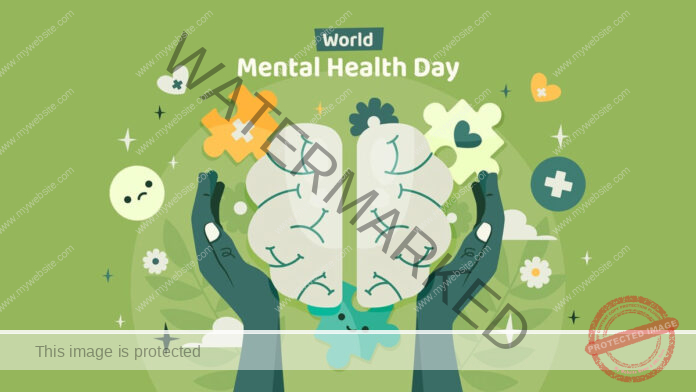Even as the world observed World Mental Health Day on Thursday (October 10, 2024), a budding researcher, 28-year-old PhD student at the Indian Institute of Technology (IIT), Kanpur ended her life by hanging herself in her hostel room in IIT-Kanpur premises. It was the fourth suicide by a researcher in the institution in last one year, reports revealed.
Likewise, Anna Sebastian Perayil, a 26-year-old Chartered Accountant and an Ernst & Young employee in Pune, also lost her life to work-related stress in July this year, just four months after joining the firm, as claimed by her mother, sparking nationwide debate pushing Indian government to officially launch an investigation into cause of her death.
Anna’s mother Anita Augustine had written a letter to Ernst & Young management mentioning about the alleged pressures her daughter had to undergo at workplace, including working late night and on weekends. She had appealed to the firm to reflect on its work culture and initiate steps to consider its employees’ health.
“Anna’s experience sheds light on a work culture that seems to glorify overwork while neglecting the very human beings behind the roles,” she wrote. “The relentless demands and the pressure to meet unrealistic expectations are not sustainable, and they cost us the life of a young woman with so much potential,” the mother added.
Shockingly, barely did the dust settle on Anna’s untimely demise that once again on Monday (September 30, 2024), headlines flashed a 42-year-old, father three minor aged children Tarun Saxena, employed as an area manager at Bajaj Finance committing suicide in Jhansi, Uttar Pradesh, just due to ‘unbearable pressure’. The five-page suicide note written by the deceased accused seniors at work for putting unbearable pressure on the victim to meet targets for last two months, threatening him with salary deductions. The victim mentioned the gory details of his mental turmoil in the five-page testimony of his ordeal.
Toxic work culture duly completed with non-commensurate pay, cruelly tight deadlines, sword of dismissal continuosly hanging on employees head, etc has made things worse at work place for a generation, where employment opportunities fail miserably to match the soaring numbers seeking employment.
Compulsions to stay in the rat race has often been found to be a major reason for mental breakdown of over stressed employees, who unknowingly cross the safety line into a world of depression and mental turmoil, leading to fatal consequences such as suicides.
This year as the world observes World Mental Health Day, the World Federation for Mental Health (WFMH) announced the theme for the day as ‘Mental Health at Work’. The theme itself reflects the state or affairs at workplace viz-a-vis mental health of the employed.
Over the years, the WFMH has been stressing on the need for a sound mental health for all as conveyed by its themes every year like in 2023 the theme was “Let’s talk about mental health”, in 2022 “Make mental health for all a global priority” while in 2021 it was “Mental Health in an Unequal World’.
For the year 2020 the theme put up by WFMH was “Mental Health for all. Greater Investment – Greater Access. Everyone, everywhere.”
Reality Check
According to the latest data from the International Labour Organization (ILO), the average Indian worker worked around 46.7 hours each week, pushing the nation among the top countries with the cruelly longest working hours.
A staggering 51% of India’s workforce slogs more than 49 hours weekly, making India emerge second in the world for extended working hours. In the ranking, Bhutan led the world with an overwhelming 61% of its workforce surpassing the 49-hour threshold. Other South Asian countries like Bangladesh (47 %) and Pakistan (40 %) are also present in the top 10 list of countries having the trend of extended working hours.
A look into the data on suicides in India provides a startling revelation. According to reports of the National Crime Record Bureau (NCRB), one-fourth of all suicides in the country were among daily wage workers in 2021 – a count which had alarmingly increased by 8 percent from 2020. Official records revealed in 2021, a shocking 42, 004 daily wage earners ended their lives in India, which swelled to 45,194, barely a year later in 2022.
NCRB records further revealed, that another 15, 870 professional persons committed suicide largely owing to work pressure in 2021 which swelled to 16, 364 in 2022.
Though there is no precise data on deaths by suicide among employees category, news reports of healthcare workers, armed force personnel, etc leading stressful lives was nothing new. In India, reports had revealed that over 350 doctors died by suicide between 2010 to 2019, most of them early stage of their career as intense training young doctors are required to undertake is exhausting. Long working hours led to severe exhaustion and depression.
Armed force is another institution pained with high number of suicides. The Centre had recently reported that over 800 army personnel died by suicides in the past five years. Most reports of suicides were reported in Kashmir besides states in North-East, where army personnel were on strenuous duty. The stress of deployment in counter-insurgent operations for long periods along with institutional problems are supposed to be some possible reasons behind these suicides.
How Business Honcos look at ‘Mental Health at Workplace’
In October last year, Infosys founder Narayana Murthy had faced extreme criticism for suggesting that young Indians to work 70-hour weeks just for pushing India’s economic growth ahead.
Likewise, Ola’s India head Bhavish Agarwal, had also come under severe criticism as he didn’t believe in the concept of work-life balance at all. Aggarwal had said that he was “fully in sync” with Infosys co-founder Narayana Murthy’s recommendation of a 70-hour work week. Aggarwal had also said that he believes that long work hours were essential for building a strong economy.
Further, reports revealed, in August 2022, founder of Bombay Shaving Company Shantanu Deshpande, had advised the gennext to “worship” work and avoid “rona-dhona (cribbing)” in an online post. He had suggested that new recruits at any job should be prepared to work 18 hours a day for the first four to five years of their career.
The journey of World Mental Health Day
The World Mental Health Day was first observed on October 10, 1992. It was started by Deputy Secretary General Richard Hunter. Till 1994, the day was based broadly on promoting mental health advocacy and mass education sans any theme. However, in 1994 theme culture invaded the mass education programme with first theme for 1994 World Mental Health Day being announced as “Improving the Quality of Mental Health Services throughout the World”.
The message is loud and clear
Experts in the field opined that healthy working environments could well shield mental health as unhealthy conditions like excessive tight deadlines, undue workload, harassment at work place besides poor working conditions could pose severe challenges to mental health of employees. If mental health is affected, it could pose grave risks to overall quality of life, consequently deteriorating work efficiency and productivity.
It is essential for governments, employers besides the organizations which represent workers and employers, and other stakeholders responsible for workers’ health and safety to work together to improve mental health at work.



























